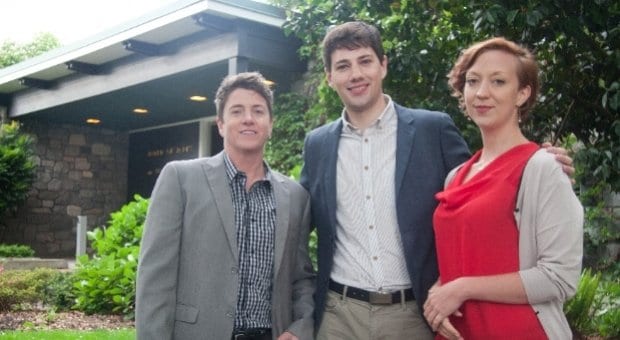The Vancouver Board of Parks and Recreation is soliciting community input on how public places such as parks, pools, beaches, community centres and skating rinks can better serve transgender people.
The park board’s working group on trans issues wants Vancouverites who don’t fit easily into traditional gender roles, or who have suggestions for trans inclusion, to tell them what the city could do better.
Created with the unanimous approval of all park board commissioners in May, the Trans and Gender-Variant Inclusion Working Group runs a blog about its work and wants people to fill out an online questionnaire about recreational facilities and programming in Vancouver.
The eight group members will compile a list of recommendations this winter and present their findings to the park board for approval in April.
The group is examining gender-neutral spaces such as washrooms and change rooms, training for recreation staff, inclusive programming, signage and literature, and collaborative community partnerships.
When parks commissioner Trevor Loke first proposed the working group this spring, he challenged the park board to make Vancouver “the most inclusive city in the world.” He says recent changes in building bylaws to encourage gender-neutral washrooms show that the city and its government are ready to tackle trans issues seriously.
Drew Dennis, a member of both city council’s LGBTQ advisory committee and the park board’s trans working group, agrees that now is the time to strike.
“Things are lining up,” Dennis says. “I think this is our chance, as the trans community and as the LGBT community, to bring our voices forward.”
According to Dennis, the park board’s support for the working group and its research shows that the city government has never been more receptive to considering trans issues.
While gender-neutral washrooms in public places may be an obvious goal, Loke and other group members do not want to say what recommendations they might bring forward next spring; they plan to remain silent until the research is done.
“The recommendations, if they’re going to be genuine and going to be long-lasting, are going to come directly from the community,” Loke says. “The key at this point is doing the research.”
The park board has a broad influence over how the City of Vancouver works: from public beaches and skating rinks to restaurants and cafés on city land. With a yearly budget of $110 million, Loke says, the board is often the public face of the city.
Since park facilities are a point of contact for many Vancouverites, trans working group member Gwen Haworth thinks improving service there could help trans people feel more welcome.
“I think about trans folk who struggle with oppression or face stigma or struggle with anxiety, and I kind of understand why they might give up on using park facilities,” she says. “It’s those little ongoing micro-aggressions that wear down people’s self-esteem and personal agency.”
In addition to trans people, Dennis says, the working group has also begun to poll other users of public facilities. The group has found that people who are not trans sometimes have gender concerns, too, such as parents and children split up by gendered change rooms. That’s one example, Dennis says, of how gender affects everyone.
“Our goal is bringing forth recommendations that are going to make our recreational facilities safe and inclusive for everybody,” Dennis says. “And we don’t want to do that in a way that’s going to exclude anyone else in the process.”
Trans and Gender-Variant Inclusion Working Group
transgendervariant.wordpress.com
Take the group’s online survey here.


 Why you can trust Xtra
Why you can trust Xtra


